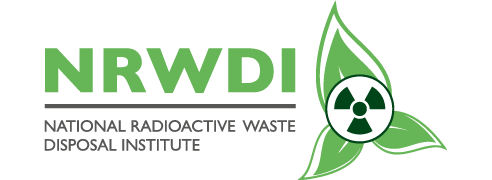FOREWORD BY THE CHAIRPERSON
The National Radioactive Waste Disposal Institute, known as NRWDI is a schedule 3A state owned entity in terms of the Public Finance Management Act, (Act 1 of 1999) and is operationalised in accordance with section 3 of the National Radioactive Waste Disposal Institute Act (NRWDIA) (Act 53 of 2008). The mandate as derived from the Act is to provide technically sound, socially acceptable, environmentally responsible, economically feasible, sustainable and publicly acceptable solutions for the long term management and disposal of all radioactive waste classes on a national basis in a safe and secure manner that protects people and the environment by ensuring that no undue burden is placed on future generations due to our past, present and future involvement in nuclear science and technology applications.
NRWDI’s role as a custodian for the safe management and disposal of radioactive waste cannot be underestimated.With the energy challenges South Africa is grappling with, the need for the country to embrace cleaner energy sources like nuclear becomes a reality, hence nuclear is included in the energy mix of South Africa. This will result in more radioactive waste being produced and the need for more facilities to manage intermediate level waste, high level waste and spent fuel. It
is of strategic importance that NRWDI plans accordingly for the waste to be managed and disposed of safely ensuring that they meet the requirements of their highly technical mandate. NRWDI plans need to be aligned to their needs of their key stakeholders, the waste generators. The only facility that South Africa has is the low-level waste facility, Vaalputs which is situated in the Northern Cape.
One of the formidable challenges that NRWDI faces is its limited budget allocation which impacts negatively on its mandate which is espoused in the NRWDIA. The limited budget allocation also poses a risk to the long-term sustainability of the entity. The key mitigation for this risk is to have the Radioactive Waste Management Fund Bill enacted as this will create a sustainable income generation stream for NRWDI as the Bill is premised on the “polluter pays principle”, where the waste generators pay levies for the safe management and disposal of their radioactive waste.
As a newly appointed Board, we are cognisant of the fact there are challenges in terms of the culture of the organisation.The culture of any organisation is dependent on the values, vision, efficient leadership, effective communication, accountability, recognition, and a healthy environment. The organisational culture is key to the execution of the strategy and the mandate. Effective strategies and interventions to turnaround the culture needs to be implemented to put NRWDI on the trajectory to take its space in the nuclear industry.
